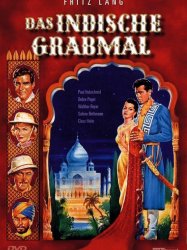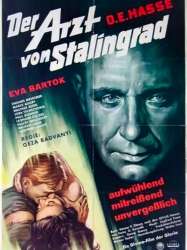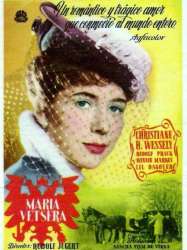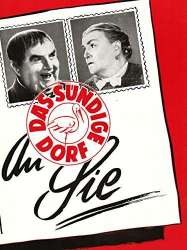Walther Reyer is a Actor Autrichien born on 4 september 1922 at Hall in Tirol (Austria)

Walther Reyer (4 September 1922 – 8 September 1999) was an Austrian actor. He appeared in more than 50 films and television shows between 1954 and 1997.
Source : Wikidata
Walther Reyer

Nationality Austria
Birth 4 september 1922 at Hall in Tirol (Austria)
Death 8 september 1999 (at 77 years) at Innsbruck (Austria)
Birth 4 september 1922 at Hall in Tirol (Austria)
Death 8 september 1999 (at 77 years) at Innsbruck (Austria)
Biography
Walther Reyer est principalement connu pour avoir joué le rôle du comte Gyula Andrássy dans la trilogie Sissi d'Ernst Marischka avec Romy Schneider. Il incarne Shandra dans Le Tigre du Bengale et Le Tombeau hindou de Fritz Lang.Usually with
Filmography of Walther Reyer (11 films)
Actor

Woman Doctors (1984)
, 1h47Directed by Horst Seemann
Genres Drama
Actors Judy Winter, Inge Keller, Walther Reyer, Michael Gwisdek, Barbara Dittus, Leon Niemczyk
Roles Dr. Riemenschild
Rating60%






The Spendthrift (1965)
, 1h50Directed by Kurt Meisel
Genres Comedy
Themes Musical films, Films based on plays
Actors Christiane Hörbiger, Walther Reyer, Josef Meinrad, Boy Gobert
Roles Julius von Flottwell
Rating73%






The Third Lover (1962)
, 1h20Directed by Claude Chabrol
Origin France
Genres Drama, Thriller, Crime
Actors Walther Reyer, Jacques Charrier, Stéphane Audran, Daniel Boulanger, André Badin, Claude Romet
Roles Andréas Hartmann.
Rating69%





Albin, a solitary French journalist who knows little of women or of the world, rents a house in a village outside Munich that is home to the respected and rich writer Andreas. In the shop he meets Hélène, a beautiful Frenchwoman who is married to Andreas. She and her husband befriend their new neighbour, who becomes besotted with Hélène. When she tactfully fobs him off, he reasons that she already has a lover and follows her. His hunch proves right when at the Oktoberfest he sees her with another man and later, trailing the two, he takes compromising photographs. Confronting Hélène with the photographs, she tells him that Andreas knows already and begs him to stop. But he will not stop and takes the photographs to Andreas, who is devastated. When Hélène gets home, Andreas beats and kills her.

Everyman (1961)
, 1h36Directed by Gottfried Reinhardt
Genres Drama
Themes Films based on plays
Actors Ewald Balser, Walther Reyer, Paula Wessely, Ellen Schwiers, Paul Dahlke, Sonja Sutter
Roles Jedermann
Rating58%






The Indian Tomb (1959)
, 1h41Directed by Fritz Lang
Origin German
Genres Drama, Adventure, Romance
Actors Debra Paget, Paul Hubschmid, Walther Reyer, Guido Celano, Claus Holm, Luciana Paluzzi
Roles Chandra
Rating65%





Recueillis par une caravane, Henri et Seetha sont soignés par des villageois. Mais ils sont trahis par certains villageois attirés par une forte récompense. Ils se réfugient dans une grotte des collines. Une statue de Shiva se trouve dans la grotte et Seetha lui rend hommage, alors qu'Henri n'en tient pas compte. De ce fait, ils sont retrouvés par les hommes de Chandra, le maharadjah d'Eschnapur. Seetha est faite prisonnière, tandis qu’Henri fait une chute en apparence mortelle.

The Tiger of Eschnapur (1959)
, 1h37Directed by Fritz Lang
Origin German
Genres Drama, Thriller, Adventure, Romance
Themes Films about animals, Mise en scène d'un tigre, Mise en scène d'un mammifère
Actors Debra Paget, Paul Hubschmid, Walther Reyer, Luciana Paluzzi, Claus Holm, Sabine Bethmann
Roles Chandra
Rating65%





The tale begins when architect Harold Berger (Paul Hubschmid) arrives in India to meet with Maharaja Chandra (Walter Reyer), for whom he will build schools and hospitals. En route to the Maharaja's palace, Berger meets a dancer named Seetha (Debra Paget) and saves her from a tiger. Seetha, whose father was European, is promised to the Maharaja, but she and the architect begin to fall in love. Predictably, this leads to a buildup of tension between Chandra and Berger, helped along by scheming palace courtiers. The film is also filled with action, and a highlight of it is Seetha's first ritual dance. At the end of Tiger, Seetha and Berger are imprisoned but escape into the desert just as Berger's sister and her husband, also an architect who works with Berger, arrive in Eschnapur. Chandra informs them the plans have changed; he now wants a tomb to be built.

The Doctor of Stalingrad (1958)
, 1h50Directed by Géza von Radványi
Origin German
Genres Drama, War, Romance
Themes Prison films, Political films
Actors O. E. Hasse, Eva Bartok, Hannes Messemer, Mario Adorf, Vera Tschechowa, Michael Ande
Roles Dr. Sellnow
Rating62%





Revenu en Allemagne, après les années douloureuses d'internement dans un camp russe, le docteur Böhler, au moment où il remplit la fiche d'identité que lui tendent ses hôteliers, revit pendant un long moment les souvenirs marquants de sa captivité. Les prisonniers allemands sont soumis à des travaux épuisants en forêt, bien que sous-alimentés et très sommairement logés. Les malades et les épuisés se font trop nombreux, le règlement russe n'admettant pas plus de trois pour cent de malades, et le docteur Böhler doit lutter quotidiennement avec les autorités russes pour conserver à l'infirmerie des hommes incapables du moindre travail…
 , 1h46
, 1h46Directed by Ernst Marischka
Origin Austria
Genres Drama, Comedy-drama, Historical, Romance
Themes Political films, Films about royalty
Actors Romy Schneider, Karlheinz Böhm, Magda Schneider, Gustav Knuth, Josef Meinrad, Uta Franz
Roles Count Andrássy
Rating66%





The Austrian empress Elisabeth, nicknamed Sissi, enjoys travelling in Hungary. She welcomes the politically valuable friendship of Count Andrássy, but when he confesses he is in love with her, she returns to Vienna lest the relationship become too intimate. Her time in Hungary is only a temporary relief from the frustrations of court life in Vienna, where dutiful Franz Josef remains at his desk and allows his strict, domineering mother Sophie to interfere in the raising of his daughter with Sissi, Sophie. Sissi decides to return and meets Franz underway who was coming to Hungary to bring her back to Vienna. They decide to take a vacation in Bad Ischl but Sissi falls ill and is diagnosed with possibly fatal tuberculosis. On doctors' orders Franz Josef must allow his mother to remove his daughter from Sissi's keeping. In poor health, deprived of the company of husband and child, Sissi is in danger of losing the will to live as she travels to healthier climates on Madeira and Corfu. Desperately needed psychosomatic therapy appears in the form of her indestructibly positive mother Ludovika, who lovingly nurses Sissi's illness and restores her zest for life by taking her on idyllic walks. Once again Oberst Böckl, the clumsy body-guard whose doting admiration for the empress borders on the improper, provides a comical note, as he does in each part of the trilogy. Finally, Sissi recovers and rejoins her husband on an official visit to Milan and Venice, Austria's remaining possessions in northern Italy. Nationalists have prepared a hostile welcome for the Habsburg sovereigns; the Milanese nobility send their servants, dressed in noble clothing, to a royal command performance at La Scala, at which the orchestra play Verdi's chorus "Va pensiero," and the disguised servants in the audience sing it in protest against Austrian rule. There is a moment of comic relief when, after the opera, Franz Josef and Sissi receive the disguised servants at a formal reception, where the servants are presented to the imperial couple under the names of their aristocratic masters and mistresses. Sissi is aware that she is not meeting the true nobility, but when the real nobles realize their servants were introduced to the emperor and empress, they shriek in despair and panic at the idea that the imperial couple believe the awkward, common servants were really the aristocrats. In Venice, crowds stand in hostile silence at the couple's procession by royal barge on the Grand Canal and as they pass, Italian nationalist flags are defiantly unfurled from behind shuttered windows. But the emotional Italians melt when they witness the openly loving reunion between Sissi and her little daughter on St Mark's Square.

Sissi: The Young Empress (1956)
, 1h47Directed by Ernst Marischka
Origin Austria
Genres Drama, Comedy, Comedy-drama, Romance
Themes Political films, Films about royalty
Actors Romy Schneider, Karlheinz Böhm, Magda Schneider, Gustav Knuth, Josef Meinrad, Vilma Degischer
Roles Le comte Andrassy
Rating66%





Sissi slowly adapts to life as empress of Austria, but her mother-in-law is hard to live with. Archduchess Sophie adheres to the long-established rules protocol and etiquette, and constantly interferes not only with the emperor's government of the empire but in his family life as well. When Sissi's first child is born, the Archduchess Sophie insists on taking away the child to raise her, because she feels Sissi is too young and unqualified to do so. Sophie also feels that Sissi's place is not in the nursery with her baby, but with her husband as the emperor travels around the empire. A scandal threatens to break out when Sissi leaves Vienna and returns to Bavaria to see her parents. She keeps the truth from her mother, but confesses to her father that she cannot live with Archduchess Sophie's constant criticism and tyranny. Franz Joseph follows her and finally convinces her to return to Vienna. This strengthens Sissi's influence with the emperor, and she supports Prince Gyula Andrássy and the cause of the Hungarians for equal standing in the Empire. The movie concludes with her being crowned Queen of the Hungarians in Budapest. (In fact the coronation was not held until 1867, but "Sissi--The Young Empress" brings the event forward in time to make the ceremony appear to be a confirmation of Sissi's improving status as empress.
 , 1h39
, 1h39Directed by Rudolf Jugert
Origin Austria
Genres Drama, Historical
Themes Films about suicide
Actors Rudolf Prack, Christiane Hörbiger, Winnie Markus, Lil Dagover, Erik Frey, Attila Hörbiger
Roles Jean de Habsbourg-Toscane
Rating60%





Le film commence avec les funérailles du prince héritier Rodolphe en 1889. Une rétrospective de sa vie, cependant, révèle un climat glacial à la cour impériale. L'empereur surveille chaque pas du prince héritier, qui à son tour s'est éloigné de sa femme Stéphanie il y a longtemps. Rodolphe, cependant, n'a pas le courage de renverser son père avec l'archiduc Jean et les Hongrois.

Das sündige Dorf (1954)
Genres Comedy
Themes Films based on plays
Actors Günther Lüders, Renate Mannhardt, Beppo Brem, Walther Reyer, Ludwig Schmid-Wildy, Rolf Olsen
Roles Sepp Stangassinger
Rating60%





 Connection
Connection



